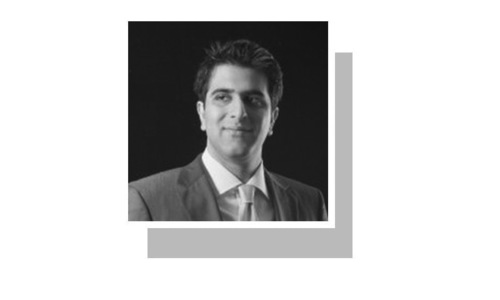PM Khan launches countrywide Sehat Insaf Card scheme

Prime Minister Imran Khan at a ceremony in Islamabad on Monday launched the first phase of the countrywide Sehat Insaf Card scheme to provide free medical treatment to approximately 80 million people.
The card, which falls under the PTI's Sehat Sahulat Programme, was part of a health insurance scheme first launched by the party in Khyber Pakhtunkhwa in 2016.
"It was first issued to half of all households, then to 69 per cent of poor households in KP," the prime minister told attendees of the event. "It made a big difference."
Under the scheme, over 80 million people ─ or 10.5 million households below the poverty line ─ will receive free medical treatment worth Rs720,000 in private or state-owned hospitals. Around 15m people will receive the cards over the next two years.
Over 150 hospitals will provide free treatment ─ including procedures such as angioplasty, brain surgery, and cancer ─ under this facility. The Sehat Insaf Card will cover treatment of all ailments except transplants, Radio Pakistan reported.
"The cards will be distributed in Islamabad, then our tribal areas and then all over the country," Khan said.
According to Minister for Health Aamir Kiani, the scheme will be launched in Punjab, Gilgit Baltistan, Islamabad, erstwhile Federally Administered Tribal Areas and Islamabad. Each family in the tribal districts will be provided the cards, whereas 85,000 families in Islamabad will be given cards. Each card holder will also be provided cost of transport up to Rs1,000 for each hospital visit.
The prime minister noted that under privileged or working class individuals often have difficulty subsisting on their salaries and meeting their household expenses. "When there's an illness, their entire budget is upset," he explained. "Research has shown that many households struggle financially due to illness" since they are already surviving at subsistence level.
He told attendees of the ceremony that when a member of a under-privileged household falls ill, his family "would sell everything" in order to be able to afford treatment.
"It's very important that we protect our poor with health cards so that if someone in their homes falls ill, they know that they can just take the Health Card to a hospital and receive treatment," Prime Minister Khan said.
A National Steering Committee comprising representatives from the federal, provincial and regional Health Departments will also be formed to review performance under the Sehat Sahulat Programme.
Khan conceded that citizens have been facing difficulties due to rupee devaluation and the ensuing rise in prices. "We are aware that people are going through hard times. The rates of gas and electricity have risen. We are aware. We are trying our best to ease circumstances as much as possible for those most affected."
The premier said he would announce a comprehensive poverty alleviation programme in the coming days.
A coordinate programme of this nature will be introduced for the first time in Pakistan's history, he said, adding that it would bring together a host of different institutions under one umbrella.
Additionally, he said, the government would provide cheap loans to needy people so they can build homes.
As part of its poverty alleviation drive across Pakistan’s poorest districts, the Pakistan Tehreek-i-Insaf in its manifesto had stated that it would "upscale the Sehat Insaf Card Programme across Pakistan to provide access to quality healthcare to citizens."
Addressing a press conference soon after the launch ceremony Federal Minister for Health Aamir Mehmood Kiani said that the cards have been launched after the initiative met with success in Khyber Pakhtunkhawa.
He further said that in case of an accidental death, Rs10,000 will be given to the card holder's family to cover the costs of the funeral.
Kiani said that the Sehat Insaf Card system is very comprehensive and is being monitored in real time by NADRA.
He also said that no government in the history of Pakistan has made such an investment on underprivileged members of the society.













































